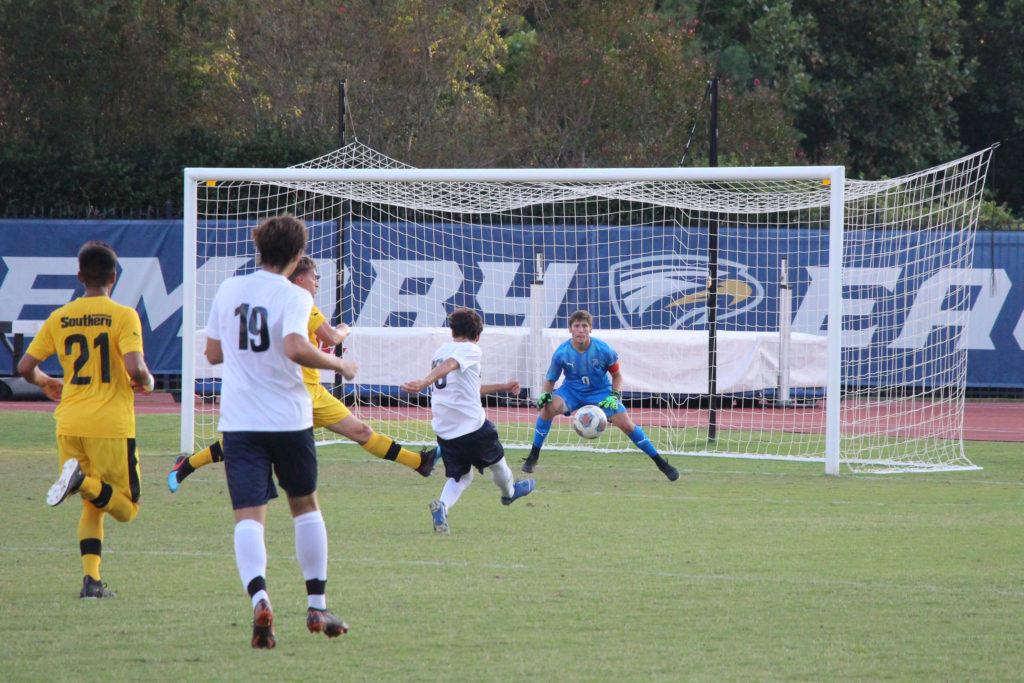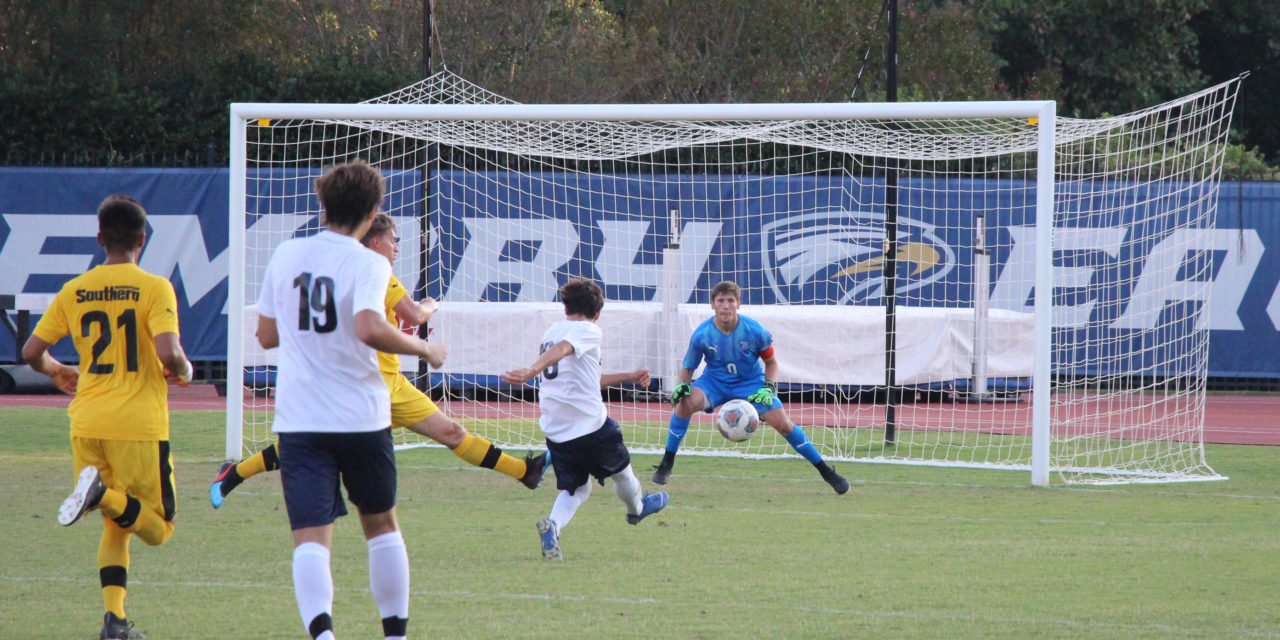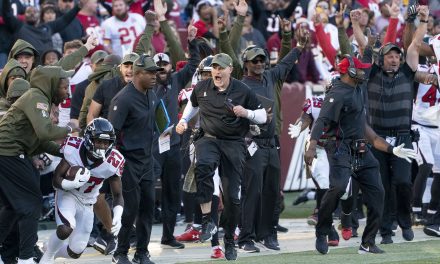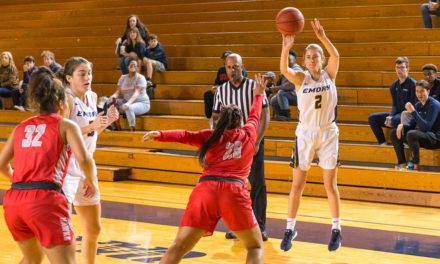
Then-freshman midfielder Alejandro Gomez faces off against Birmingham-Southern College’s goalie in their Sept. 8, 2019 match. Gomez and his teammates will return to the field this fall after the 2020 season was canceled due to COVID-19. (Noyonika Parulekar/Contributing)
Over the last few months, Emory sports teams have gradually taken steps to return to normal practice and competition as the community has been getting vaccinated and case numbers continue to decline.
In February, teams returned to practice in a limited capacity, progressing to full practices just a couple weeks later. In March, the golf, tennis, softball, track and field and baseball teams competed against other schools for the first time in a year. And on April 6, baseball hosted the first home game of any Emory athletic team in over a year.
Athletes enjoyed more good news on May 11 when the University Athletic Association (UAA) announced plans to resume conference competition. Emory teams only competed against local teams to minimize travel during the pandemic. Since UAA schools are all across the country and require air travel, Emory did not play any teams in their conference this spring.
While men’s soccer junior forward Zach Kornblum was thankful for the opportunity to have any semblance of a season this past spring, he believes the opportunity to compete against other UAA schools has improved the spirit of the team.
“The spring was good,” Kornblum said. “We were able to train together, but we were still a bit restricted with COVID. We didn’t have the locker room — a couple of other things weren’t totally normal. So the announcement, as far as morale goes, is definitely exciting for everyone.”
While many expected the UAA to permit conference competition for the upcoming season, especially with most of its member schools requiring vaccines for all students, Athletic Director Keiko Price explained that some finer details are still up in the air.
“Many of our institutions are still sorting through whether or not visitors or spectators will be allowed,” Price said. “Prior to COVID, you could come and watch a baseball game as a spectator, and we’re still trying to work through that collectively and on our own institutional campuses.”
Despite the uncertainty surrounding fan attendance at sporting events, Price noted that because UAA member schools are very far away from each other, travel will be similar to before the pandemic in that teams will fly to road conference games. For Kornblum, those long flights are instrumental in building team chemistry.
“Those trips are fun,” Kornblum said. “Obviously, the soccer part is the main point and super competitive, but being with the guys and making those memories is really fun and something that we look forward to as well.”
In addition to allowing Emory athletic teams to compete against the other seven universities in the conference, the decision provides an opportunity for teams to receive an automatic bid to the playoffs if they win the conference. For example, this past year in which there was no UAA conference competition, the only way for Emory teams to make the playoffs was to earn an “at-large” bid by winning a lot of games against non-conference opponents. At-large bids are very difficult to receive because teams are competing with the resumes of all Division III schools that did not win their conference’s automatic bid.
However, for Kornblum and the men’s soccer team, the return of UAA competition makes it easier to earn an at-large bid. As the UAA features highly-ranked soccer teams, Emory has more opportunities to secure quality wins and build their strength of schedule than teams in weaker conferences.
“The UAA is one of the strongest conferences in Division III soccer,” Kornblum said. “If you win the UAA, you are in the NCAA tournament. And then if you come second or third, or even fourth, depending on your strength of schedule and how other things play out, there’s generally a good chance that multiple teams from the UAA will make the NCAA tournament.”
While Kornblum gained experience playing against other UAA schools during his freshman year in 2019, the pandemic has created a situation in which some junior spring athletes will compete against another UAA school for the first time. Although Price recognizes the challenges athletes have faced the last two years, she wants them to know that they should make the most of their opportunities next year.
“I think it’s important for [athletes] to know that we understand it’s been a tough couple of years,” Price said. “[Athletes] should give 100% despite how much we’ve had to overcome. We’ve done everything that we can to ensure that [athletes] are going to be safe, and we’ve really done our part to protect their well-being.”
Andrew Feld (23C) is from Marietta, Georgia, completing a joint major in human health and economics along with a minor in Earth and atmospheric science. He is a former Emory Baseball player, and in addition to writing for the Wheel, he is a Vice President of the Talks branch in TableTalk. If he’s not working out or playing basketball, Feld is likely watching his longtime favorite New Orleans Saints suffer another playoff heartbreak.





